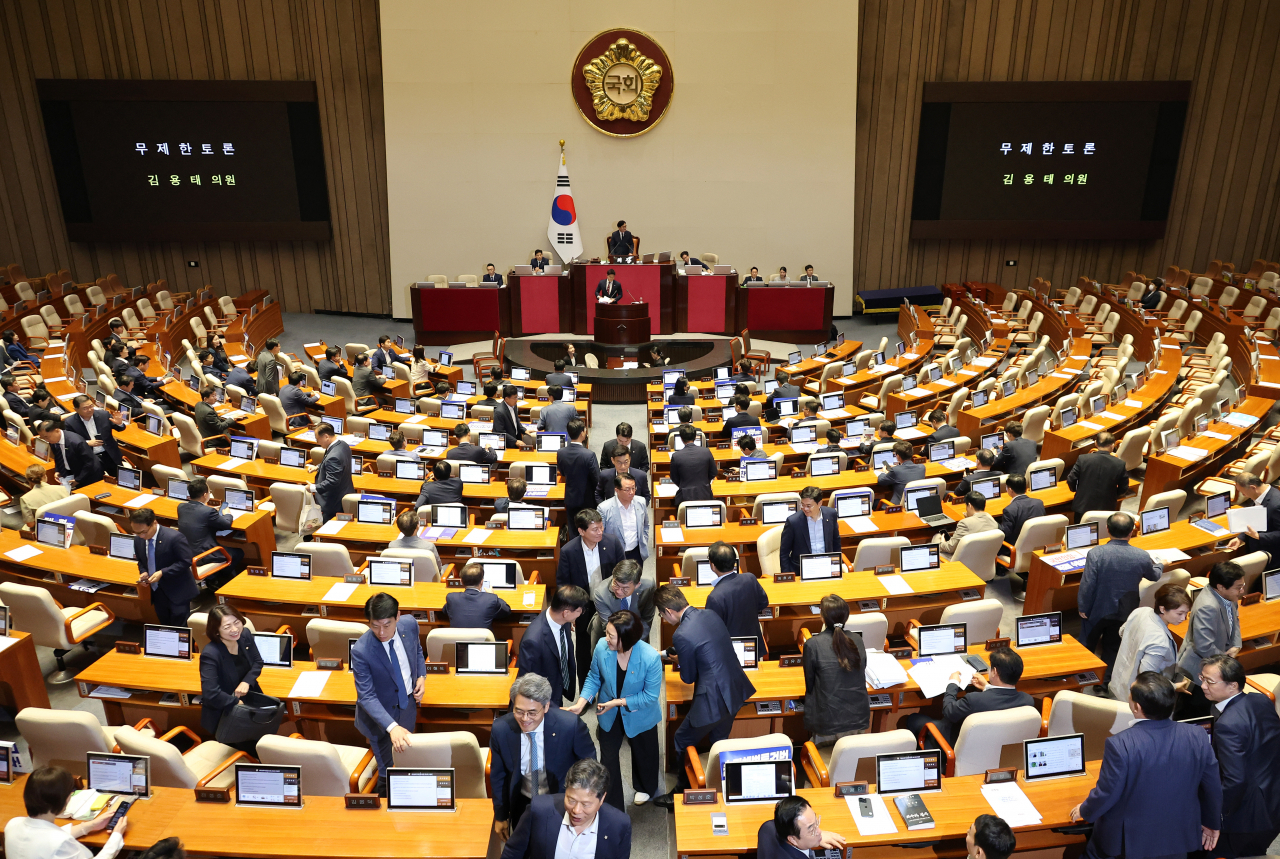
The National Assembly, controlled by the opposition, approved one of the four controversial broadcasting bills on Monday, which aims to reduce the government's influence over public broadcasters. Lawmakers from the ruling party walked out in protest as the main opposition Democratic Party led the bill's passage in a 187-0 vote, following a motion to forcefully end a filibuster by the ruling People Power Party (PPP). The revision to the Foundation for Broadcast Culture Act seeks to increase the number of board directors at public broadcaster MBC from nine to 21. The other three bills, led by the main opposition Democratic Party, are intended to reform the governance structure of the nation's public broadcast media by weakening the government and National Assembly's power to name board directors. The ruling People Power Party (PPP) has argued that the broadcasting bills will only lead to an increase in the presence of progressive figures on the boards of public broadcasters, while the Democratic Party (DP) has stated that they will prevent political influence in the appointment of the heads of public broadcasters. The PPP has been using filibusters, lasting up to nearly 31 hours, to block the passage of the four contentious broadcasting bills. The National Assembly recently passed a revision to the act on the establishment of the Korea Communications Commission, which calls for increasing the number of standing members required to pass a resolution from two to four. Assembly Speaker Woo Won-shik is expected to put forth the last remaining bill, the Korea Educational Broadcasting System Act, for a vote after the PPP's filibuster ends. President Yoon Suk Yeol vetoed three broadcasting bills last year, excluding the revision to the act on the establishment of the Korea Communications Commission, after they were passed by the opposition-controlled parliament.
